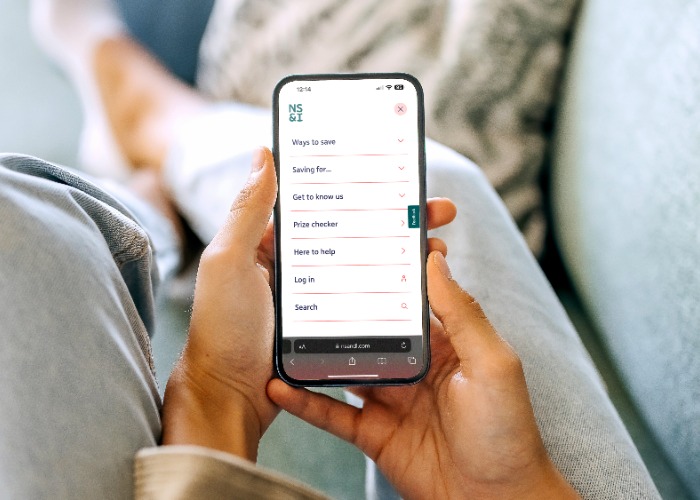Are Premium Bonds right for you? The groups who should consider them, and those who should avoid

With Brits holding more than £128 billion in Premium Bonds, we examine the appeal of these products to different types of savers.
The prize rate might have plummeted, but Premium Bonds remain the most popular home for savings by some distance.
So what’s the lure?
For many, these products are a convenient way to avoid tax.
Others get a kick out of the possibility they could bag a £1 million prize.
In this article, we look at seven groups who could benefit from these products – and the savers who’d be better off putting their cash elsewhere.
6 savers who could benefit from Premium Bonds
1. High earners
If you’re a Higher or Additional Rate taxpayer, you probably want to do all you can to minimise your liability to the taxman.
As prizes from Premium Bonds are tax-free, they are a great way to stash money away from HMRC, especially if you’re a high earner.
Basic Rate taxpayers currently have a £1,000 allowance on the amount they can earn in savings interest before paying tax.
However, this threshold is just £500 for Higher Rate taxpayers, while those in the Additional Rate band pay tax on all savings interest.
The products could be particularly attractive for older savers in this tax bracket, who would prefer to avoid the risk of investing later in life.
2. Thrill seekers
For many savers, the attraction of Premium Bonds lies in their lottery-style draws.
Every month, two winners receive £1 million each, with other prizes ranging from £25 to £100,000.
While we know we’ll probably never win big, the remote possibility can add an element of excitement to our finances.
As things stand, each bond has a roughly one in 22,000 chance of winning a prize of any sort.
Premium Bonds: here’s when the winning numbers are revealed each month
3. People who want access to their money
These products could also be ideal if you need to access cash in the case of an emergency.
As Premium Bonds are an easy-access product, you can cash in all (or part) of your savings without penalty.
You can do so online, over the phone or through the post.
According to NS&I, you’ll typically receive your funds within three working days, although postal withdrawals may take longer.
4. Anyone keen to avoid fees
Unlike most investment platforms, Premium Bonds are fee-free, meaning you won’t face exorbitant charges when opening an account or making a withdrawal.
In contrast, most financial advisers charge fees of between 1% and 2% on your investment pot, according to Unbiased.
The easiest way to buy Premium Bonds
5. People seeking hassle-free savings
With savings rates constantly changing in response to Bank of England decisions, getting the very best return on your cash requires quite a bit of effort.
If you want a market-leading deal, you must constantly watch best-buy tables and be prepared to move your money frequently.
For many of us, this isn’t feasible.
Premium Bonds can provide a hassle-free alternative. Once you’ve purchased a bond, you only need to sit back and wait to see if you win.
Even if you don’t monitor the monthly prize draws, NS&I will contact you if you bag some cash.
6. Grandparents and parents
Premium Bonds have been a traditional gift for kids and newborn babies for decades.
They provide a safe and secure way to save, while offering the excitement of monthly prize draws.
While parents, grandparents and great-grandparents had previously been the only groups allowed to buy Premium Bonds for children, NS&I has relaxed these rules.
You can now buy bonds for any child, regardless of your relationship with them.
You can buy Premium Bonds for children on the NS&I gift page.
3 reasons to avoid Premium Bonds
Of course, Premium Bonds aren’t for everyone.
1. You need regular income
As draws are random, there’s a chance you could hold a bond for 50 years and never see a penny.
As such, these products may not be the best option if you want a guaranteed return on your cash.
2. You have a small pot
With the chances of winning directly tied to the number of bonds you hold, Premium Bonds may not be the best bet if you only have a small savings pot.
Say you only hold a small number of bonds, your chances of winning are pretty low.
For example, you're statistically far more likely to earn nothing at all on a £1,000 holding over the course of a year.
3. You need protection against inflation
Finally, Premium Bonds might not be suitable if you’re concerned about the corrosive effects of inflation.
With inflation currently standing at 3.4% – and forecast to reach almost 4% later this year – and the prize rate being repeatedly cut, there's a chance your money won't grow in value fast enough while it sits in Premium Bonds.
The best tax-free savings products out there currently pay up to 4.85%, well above the 3.8% rate Premium Bonds will pay from April and thus far more likely to offer protection against inflation.
Have your say
Are you a fan of Premium Bonds? Do you enjoy the excitement of lottery-style draws or maybe you appreciate hassle-free savings?
Or perhaps you think Premium Bonds are for suckers, and you’d prefer to have a guaranteed return.
We’d love to hear your thoughts in the comments below.
The information included in this article does not constitute regulated financial advice. You should seek independent, professional financial advice before making any investment decision.
Comments
Be the first to comment
Do you want to comment on this article? You need to be signed in for this feature